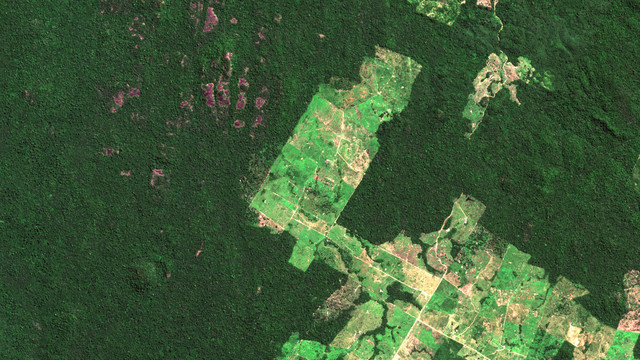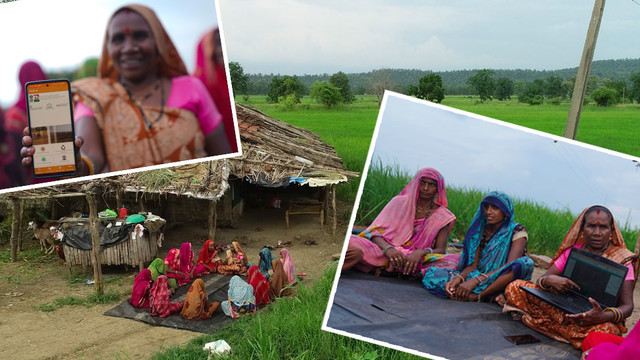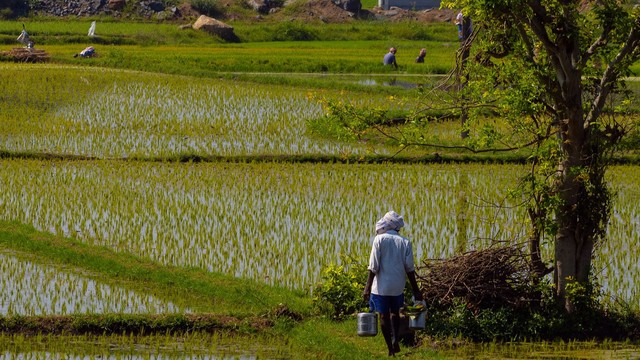Climate change link to hysterectomy crisis among Indian sugar workers
Exploitative conditions penalise workers for taking breaks, leaving women a grim choice to solve the ‘problem’ of menstruation.
New research links climate change to the scandal of female farm labourers in India undergoing hysterectomies to avoid having to miss work and lose pay. Experts have now called on administrators of the COP28 'loss and damage fund' to consider how they can help.
Women from Beed district in India’s Maharashtra state are being forced to leave their homes to work in the sugar cane industry elsewhere because climate change is increasing the frequency of droughts and decimating their own crops, according to the new paper from IIED.
Many female labourers suffer debilitating menstrual periods due to the demanding nature of this work, which entails shifts up to 16 hours long. Exploitative informal contracts incorporate financial penalties for missing work, causing women to feel they have no choice but to have their wombs removed so their periods don’t prevent them from working. Hysterectomies of this kind are still taking place despite widespread outcry in India. The procedure, performed mostly in private clinics, can leave women with lasting pain and mental health problems.
In 'Women paying the cost of climate crisis with their wombs', researchers surveyed 423 households in two different areas of Beed. People in 253 households migrated to work in the sugar industry, while people in the remaining 160 households did not travel to find work. The most common reason given for migrating was drought, and more than half the women from households that migrated (55.73%) had undergone a hysterectomy, compared to less than a fifth from households that had stayed in Beed (17.06%). Some told IIED they were still in their twenties when they underwent the procedure.
Analysis of data between 1986 and 2022 implies a long-term trend of declining rainfall in the region, with droughts becoming more frequent and more severe. Village records and IIED’s survey data suggests migrating for work has also become markedly more common in the last couple of decades.
The majority of those migrating for work said they went to cut sugar cane in harvest season. Local labour contractors known as mukkadams typically hire husband-and-wife teams known as jodis to work in pairs, not through formal contracts but through informal agreements.
A typical day for these labourers involves shifts ranging from 12 to 16 hours, for the duration of the six-month harvest. Men will usually cut the cane while women will tie and stack bundles. These jodis are often subjected to wage deductions for missed work, creating a pervasive fear of taking any leave.
Jayashree Owhal, a 45-year-old cane cutter from Kathawada village, Beed district, told researchers: “My [menstrual] cramping became unbearable after a point. I went to see a gynecologist in Beed, he suggested I should stop lifting the heavy bundles but that was the only source of income for us. So I decided to get the hysterectomy done and get rid of this every month ‘pain and stain’.”
Other women described having nothing to use as sanitary products other than the cloths they use to carry cane bundles with. These are often left covered in pesticides and chemicals, with tiny cane particles stuck to them. One woman said she had no option but to take her newborn daughter to the cane fields with her so she could continue working. When the mother put the baby down to stack cane bundles, she was struck and killed by a tractor.
Ritu Bharadwaj, a principal researcher for IIED, said: “When we talk about the losses incurred and the damage done by climate change, we’re not just talking about flooded apartments in New York, or scorched hillsides in Greece. These women’s experiences are also a result of climate change which has decimated their livelihoods, and some of what they have lost – their dignity, good health, in some cases their lives – is difficult to quantify.
“Those in charge of the loss and damage fund agreed at COP28 last year should work with Indian officials to create a social support structure for labourers, to prevent more pain and heartache in future."
Delegates at the recent COP28 climate negotiations in Dubai agreed on a new loss and damage fund to address the inequity in the impacts of climate change which are already being felt acutely by many people in the global South.
The paper makes a number of suggestions about how money from the fund could be used, while attempting to begin quantifying the cost of health problems suffered by people like those migrating from Beed to work in the sugar cane fields.
The new loss and damage fund could be used to provide additional benefits through social protection programmes during times of climate crisis like drought or flood. It could be used to incorporate climate risk assessments and planning into social protection programmes.
It could fund training programs for local officials and the construction of durable roads and facilities that remain functional during disasters, thereby ensuring uninterrupted delivery of social protection services. And it could fund the development of resilient infrastructure, like water conservation, for longer-term drought proofing.
For more information or to request an interview, contact Simon Cullen:
+44 7503 643332 or simon.cullen@iied.org





